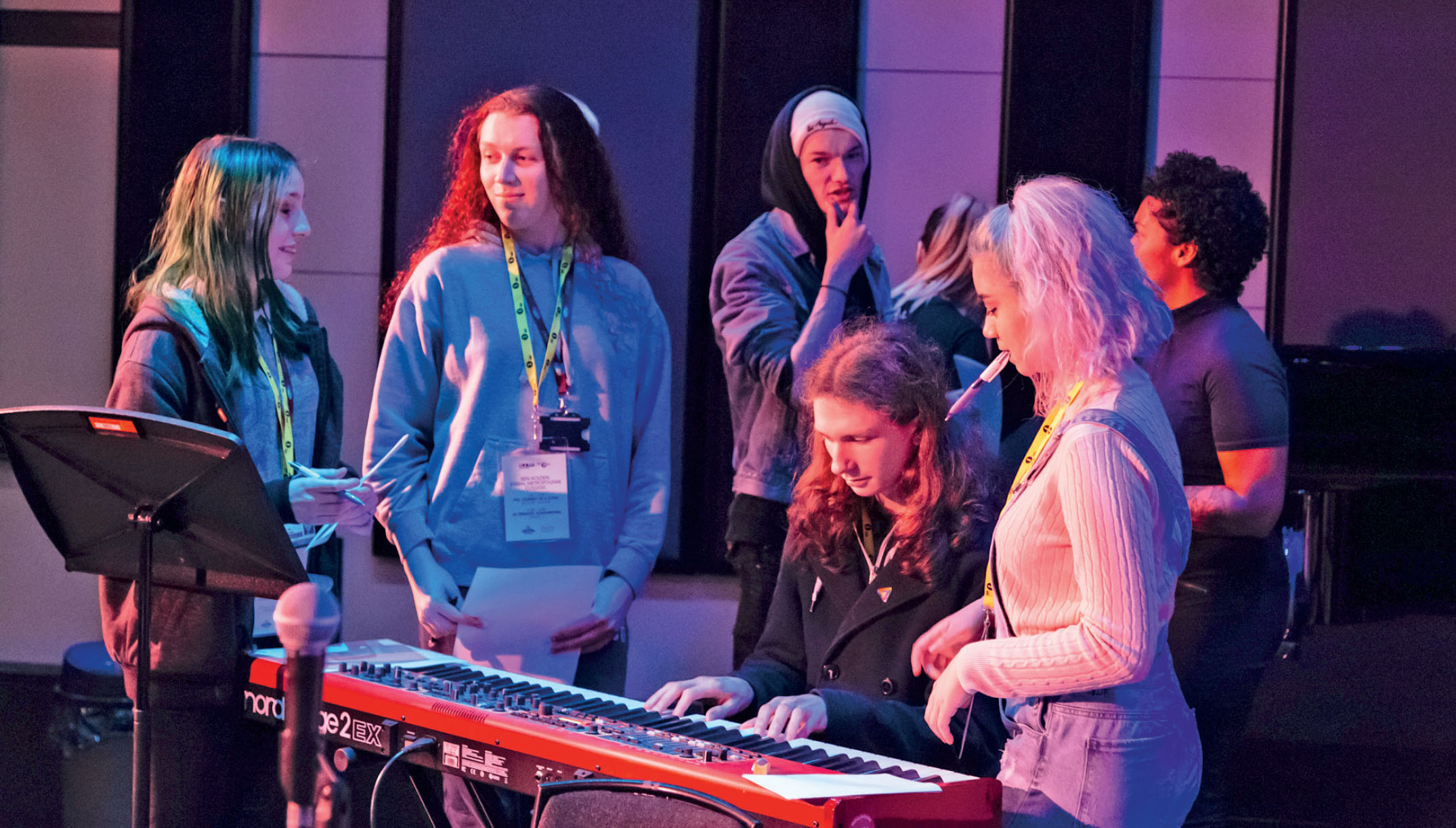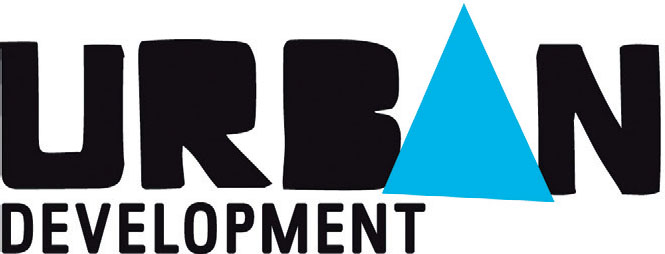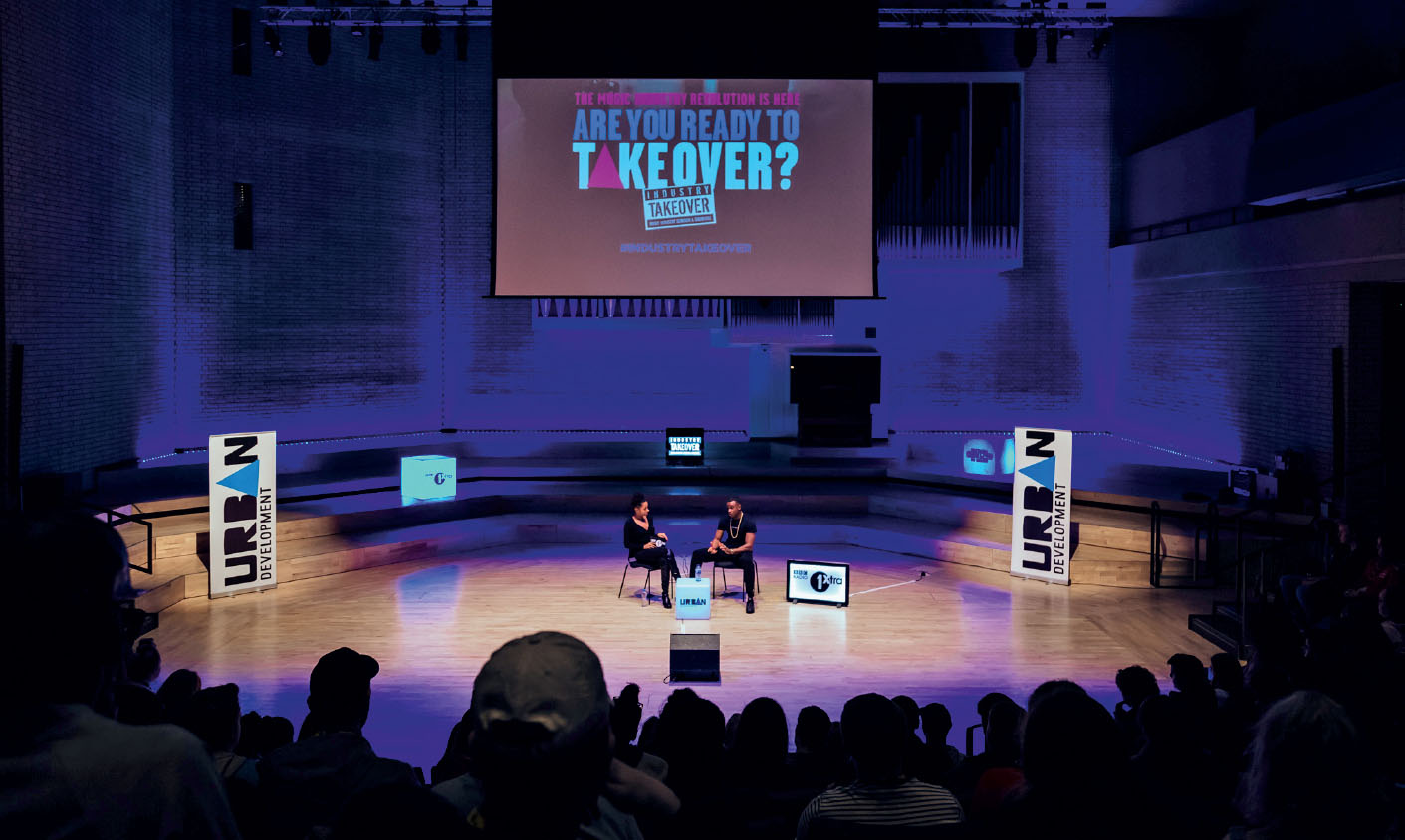
Currently based at Tileyard Studios near King's Cross, Urban Development (UD) is waiting for the get-go to move into a new, fit-for-purpose building in Stratford, East London. An Arts Council England portfolio-funded charity, UD is almost as new as the genres it celebrates: for 17 years, it has been working as a talent development house for urban culture, enabling young people from urban, minority and sometimes disadvantaged backgrounds to progress towards careers in urban music.
UD was founded by Pamela McCormick in the late 1990s after she made a connection between her own childhood in 1970s Belfast and the deprivation she saw after moving to London in 1996. After graduating from university she worked for a jazz promoter in Edinburgh, Monte Carlo and Paris, producing high-profile jazz tours. Through this vein of her career, when she arrived in London and met a group of hip-hop artists ‘who didn't really have a bite of the funding pie’, she knew that she wanted to bring about change.

Urban Development students in a BBC 1xtra live session
‘I helped them translate their vision to a language the funders could understand, which then led to the creation of an education programme led by those artists, one that they would have liked themselves when they were young people from East London interested in hip-hop culture,’ McCormick says – and so UD was born.
Finding funding
ACE has funded UD from the very beginning, becoming the first donor in 1997. ‘It was called London Arts then,’ McCormick says. ‘It funded a project called Lyrical Lounge at the Jazz Café by an artist called DJ Pogo, the person with whom I set up Urban Development in 1999.’
The late 1990s were, according to McCormick, ‘heady times’: it was around then that both Youth Music and the PRS Foundation were created, ‘and we were one of the first organisations to be funded by them,’ says McCormick. ‘They were looking for recommendations from ACE and music officer Andrew McKenzie, who cared passionately about diversity, was behind the recommendations.’
Fast-forward through the pilot year of 2000, and the subsequent years as a non-profit organisation, to 2013, when funding was secured from the Paul Hamlyn Foundation. ‘We made the case that we had scalable project models, and they were interested in financing the programme that tested that thinking.’ The funding was secured on the strength of an 18-month pilot, with work beginning in 2015.

National scale
Also in 2015, it was announced that UD had been granted funding from ACE to establish a national youth music organisation for commercial and urban music. This would sit urban music alongside other genres with more traditionally established progression routes: organisations like the National Youth Orchestra of Great Britain, for example, which was formed in 1948.
‘We have outreach programmes in schools, we are asking teachers who actually do know where the talented individuals are – who are possibly not known to the hubs because they haven't had private instrumental tuition,’ McCormick says.
From this structural outreach programme, individuals are referred to holiday schools, ‘and then to an ensemble that we've been building called Urban Flames’. Urban Flames has been running for roughly five years and meets the need for a national urban vocal collective – an initiative that not only emulates the scale of ensembles in the classical music sector, but one which looks to bring UD's reach to the whole of the UK, rather than limiting it to the capital city.
UD is also working to develop a similar model on a smaller scale with three regional partners, with the intention that by next summer, UD will have a residential holiday school ‘that is mirroring what's happening with National Youth Music Organisations (NYMOs) such as the National Youth Choir of Great Britain and the NYO’. This is the goal: to continue working in London and nationwide with these regional ‘satellite projects’, and to have firmly established Urban Flames as a national vocal ensemble.
‘We're demonstrating that the talent is there, that they're accessing these high-profile performance opportunities through the existing infrastructure, and that we want to try to create more of these opportunities in the commercial world – such as festivals. We're proving that it's working and that when we create this residential summer school, we will be able to recruit outside of London.’
The funding is still small in relation to the scale of this sort of project – ‘but we're trying to make the case and deliver the valuation evidence to carry on lobbying and fundraising. That's what we do around music education.’
Currently, UD has a plan for music education for those aged up to 18, but it doesn't currently offer a Level 3 qualification. ‘We do Level 4 however, working with 18- to 25-year-olds, with a mixture of people who are coming straight from sixth form or are returning to education. We're trying to join up the dots by creating a progression agreement with a university for some of them to go into the second year, having done a Level 4 with us,’ McCormick says. Is there scope for UD to deliver Level 3 education in the future? ‘It's quite a competitive sector, but I think we will probably look at it if and when we have our own building.’ (See ‘Fit-for-purpose’, below, for more on this.)

Pamela McCormick: ‘We're trying to make the case and deliver the valuation evidence to carry on lobbying and fundraising’
Coalition of support
It is interesting that underground urban music like grime – which evolved from garage and jungle – has so quickly come to the foreground of popular music, but McCormick tells me that the same expression of disenfranchisement and disadvantage has been bubbling around for years in many different musical forms and genres. ‘Grime music is the latest iteration of hip-hop culture and hip-hop culture before that was jazz really. It's these forms of music that pop up from the underground and influence the mainstream.’
But where does UD place itself within such a sudden surge of commercial interest in something like grime, which, until Dizzee Rascal won the Mercury Prize in 2003, was still underground? ‘When we started, we were very much a grassroots culture and while absolutely being rooted in all of that, what we're seeing is that we're now more inside the industry than outside it – and that's why I think we were visionary in a way, and it plants us more firmly in place now,’ McCormick says.
‘The music reflects society as a whole in terms of the workforce and the artists and support, and I think there's much more of a coalition of support within the industry than there's ever been.’
FIT-FOR-PURPOSE
Until recently, UD had always been based in Stratford, but after its building was demolished, it has temporarily relocated to King's Cross and is using the opportunity to fundraise and advocate for its own purpose-built space on a new development back in its Stratford roots.
‘We've raised £1 million from ACE and we're halfway through the process of getting another £1 million,’ says McCormick. ‘We've got through the expression of interest stage and we've now got to submit a second-stage application. If we're successful, we'll move back to Stratford in 2019 into a new fit-for-purpose centre, [based on] the idea of collaborating between music, dance and digital. We'll be connecting up with the communities we've always worked with, creating that bridge to the music industry.
‘With access to that scale of space, we would then want to grow our programme, which could look at Level 3, apprenticeships, more arts development, collaborating with East London Dance, and creating an engine room for talent and progression towards the creative industries.
’The new 11,000 square-foot building would include high-end teaching spaces, recording and dance studios, high-spec digital facilities for streaming and sharing work, office space and hot-desking to enable young enterprises and working partnerships to flourish.
'We're also hoping to be able to influence other tenants across the development. The idea is that, working with the developer, we will try to create a critical mass of a creative industry presence.
’The current delivery date of the building is 2019, and thereafter ‘it'll be our forever-home’, McCormick says. ‘We hope to build long-term resilience to create this mixed model of funding between education, talent development, commercial revenue and partnerships.’








